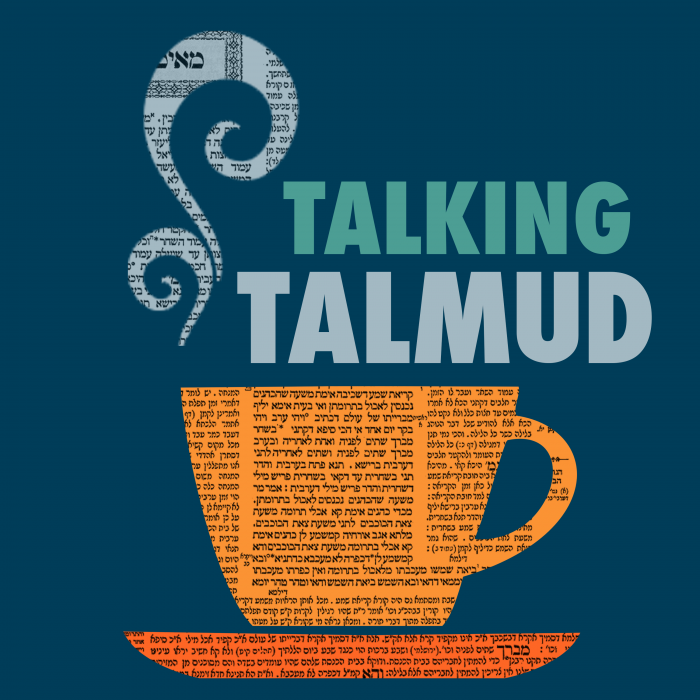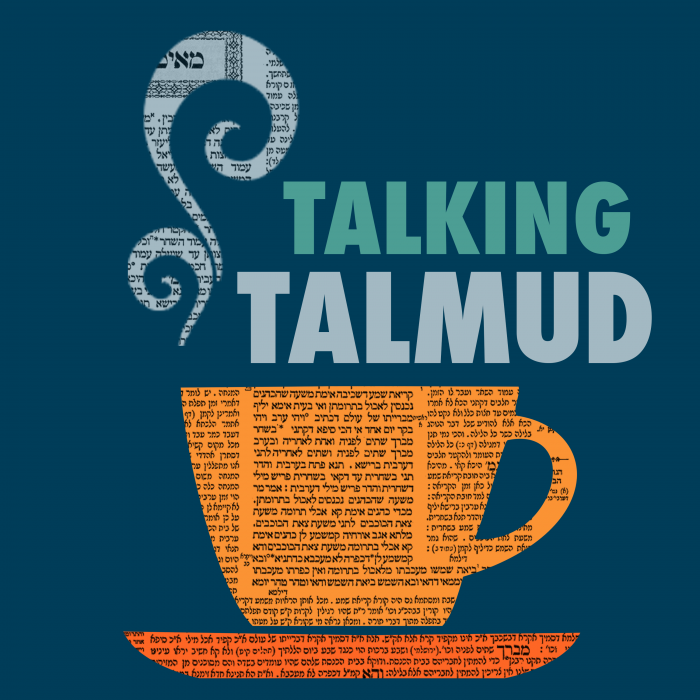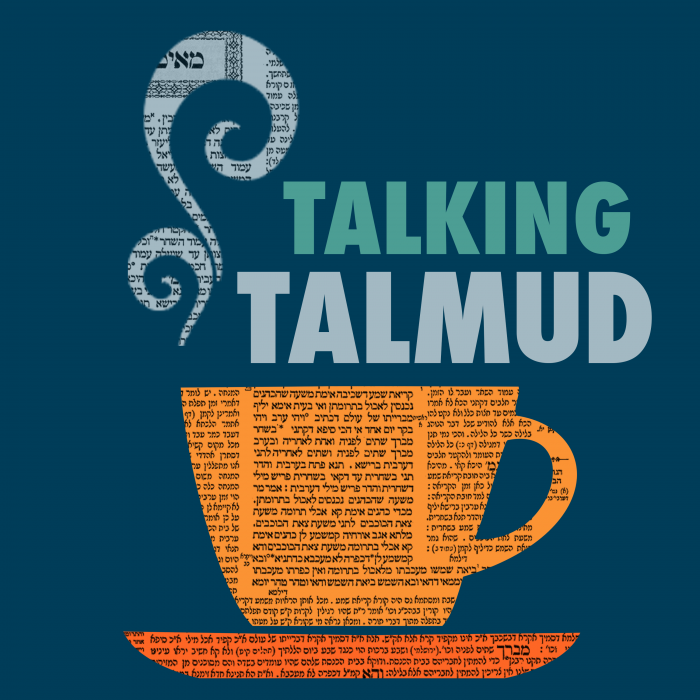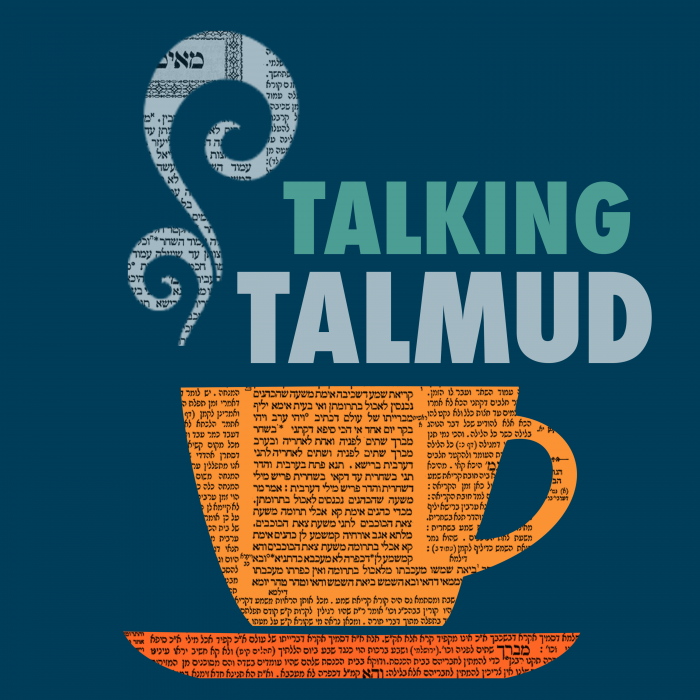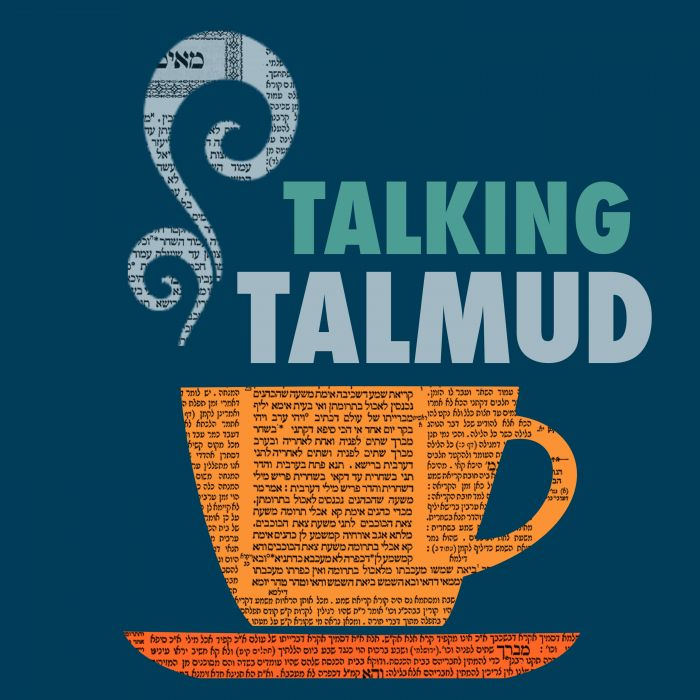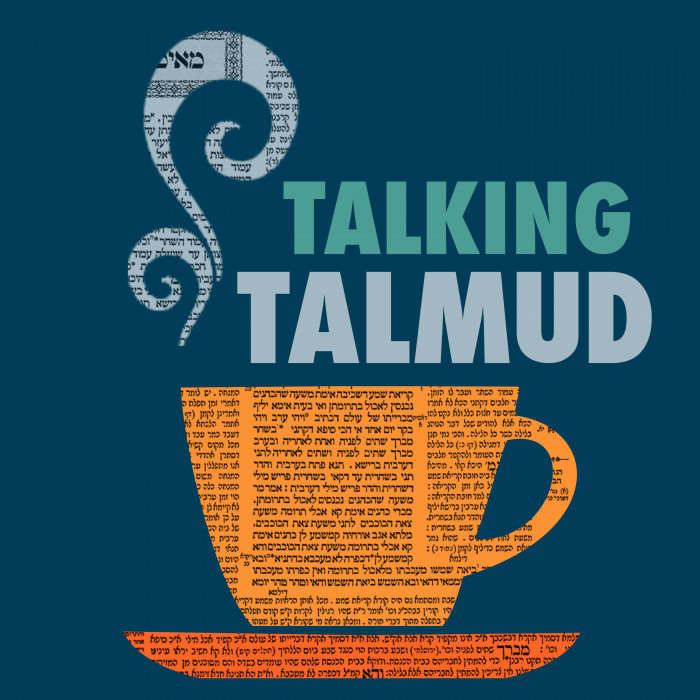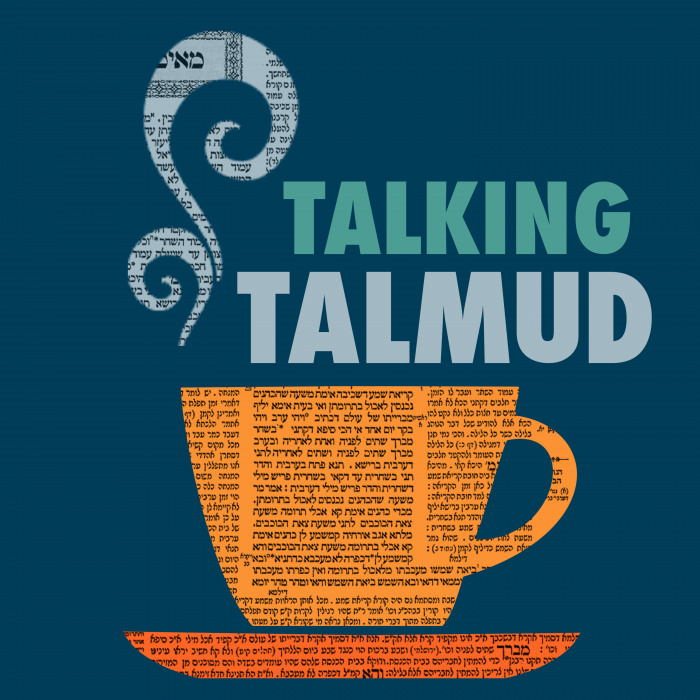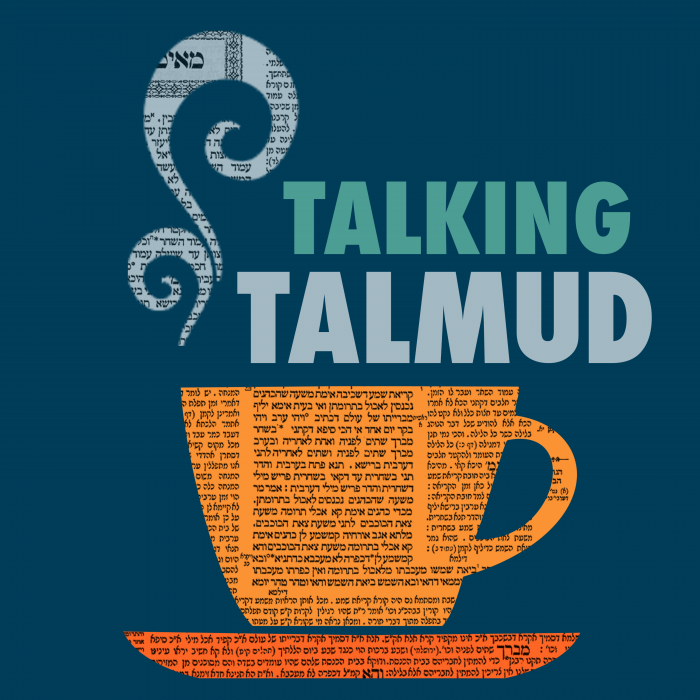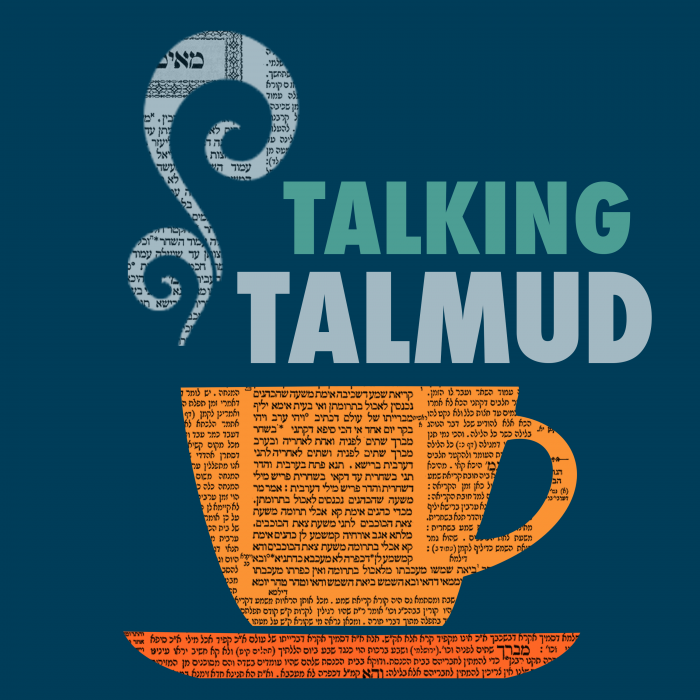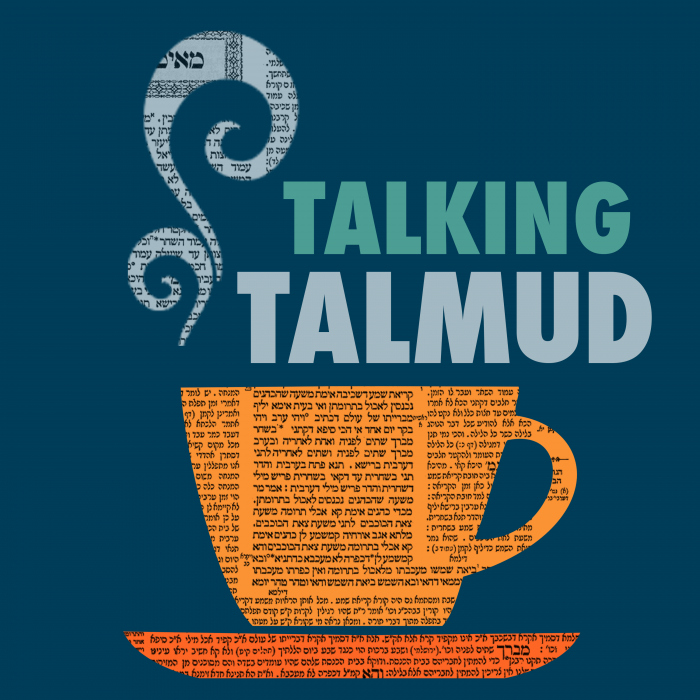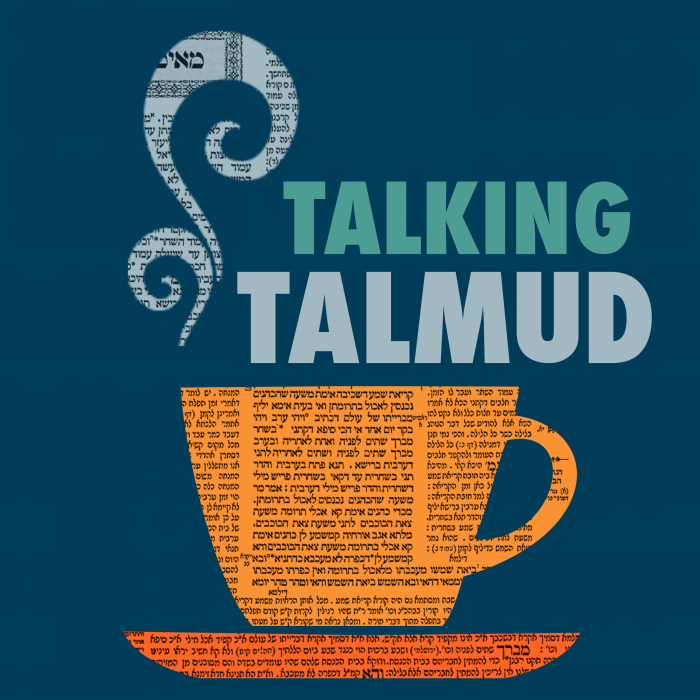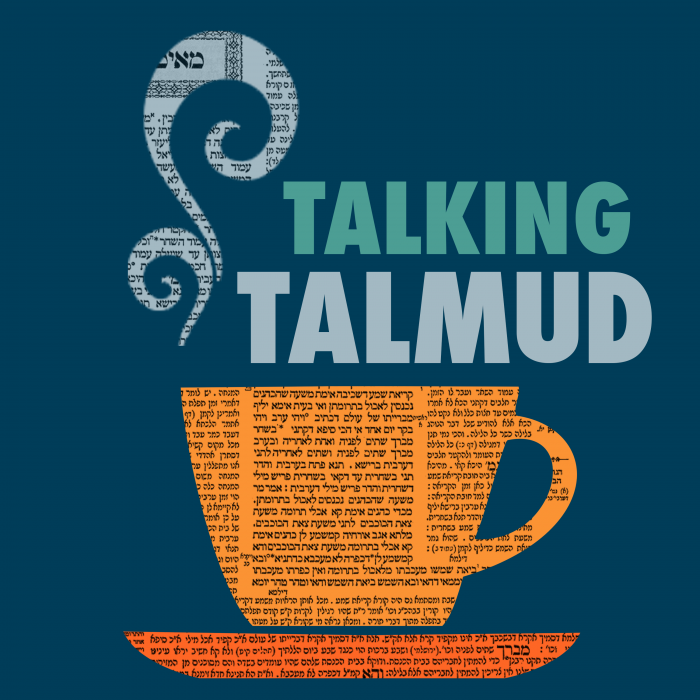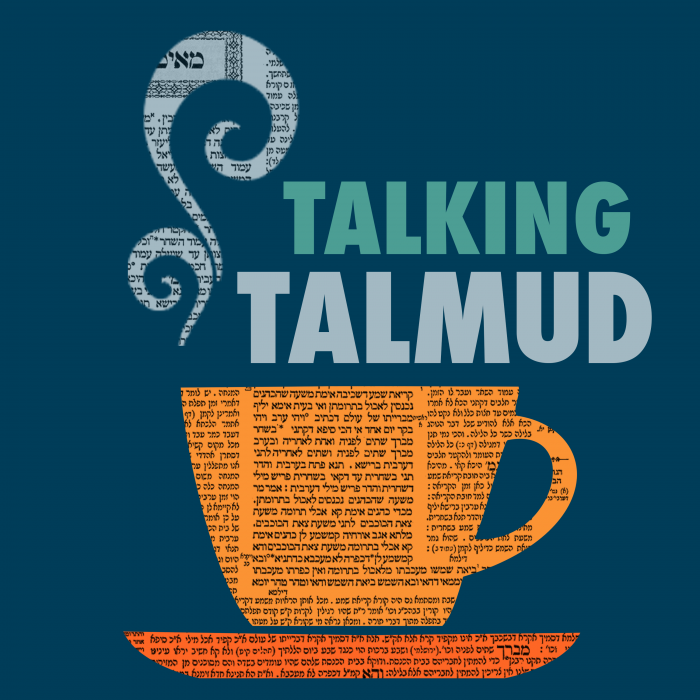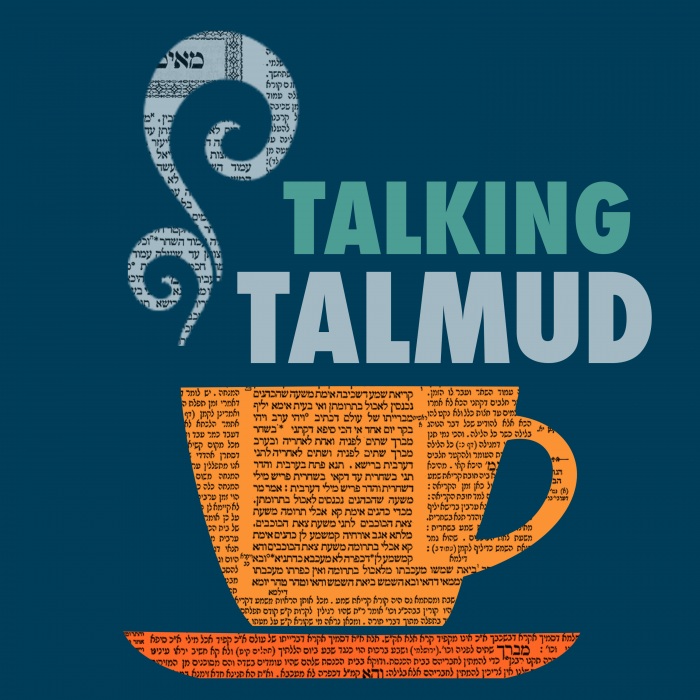Why is there a difference between the change of name of Yaakov and Avraham’s name change? Is it forbidden to call Avraham Avram? Does the mitzva of shema need intent? Why type of intent? Is one allowed to speak at all during shema and its blessings? On what does it depend? What is the significance of the order of the sections of shema? Does one need to say shema in hebrew or can one say it in any language? There is a debate and each brings proof texts. Until what section of shema does one need intent? Can one say shema in one’s heart or does one need to say the words? Does one need to hear the words? Can one say only the sentence “shema…” and fulfill one’s obligation? It is told of Rabbi Yehuda Hanasi that he did that – why?
This month’s learning is dedicated to the refuah shleima of our dear friend, Phyllis Hecht, גיטל פעשא בת מאשה רחל by all her many friends who love and admire her. Phyllis’ emuna, strength, and positivity are an inspiration.
Want to dedicate learning? Get started here:

Today’s daily daf tools:
This month’s learning is dedicated to the refuah shleima of our dear friend, Phyllis Hecht, גיטל פעשא בת מאשה רחל by all her many friends who love and admire her. Phyllis’ emuna, strength, and positivity are an inspiration.
Today’s daily daf tools:
Delve Deeper
Broaden your understanding of the topics on this daf with classes and podcasts from top women Talmud scholars.
New to Talmud?
Check out our resources designed to help you navigate a page of Talmud – and study at the pace, level and style that fits you.
The Hadran Women’s Tapestry
Meet the diverse women learning Gemara at Hadran and hear their stories.
Berakhot 13
לֹא שֶׁיֵּעָקֵר ״יַעֲקֹב״ מִמְּקוֹמוֹ, אֶלָּא ״יִשְׂרָאֵל״ עִיקָּר וְ״יַעֲקֹב״ טָפֵל לוֹ. וְכֵן הוּא אוֹמֵר ״אַל תִּזְכְּרוּ רִאשֹׁנוֹת וְקַדְמֹנִיּוֹת אַל תִּתְבֹּנָנוּ״: אַל תִּזְכְּרוּ רִאשֹׁנוֹת״ — זֶה שִׁעְבּוּד מַלְכֻיוֹת, ״וְקַדְמֹנִיּוֹת אַל תִּתְבֹּנָנוּ״ — זוֹ יְצִיאַת מִצְרַיִם.
not that the name Jacob will be entirely uprooted from its place, but that the name Israel will be the primary name to which the name Jacob will be secondary, as the Torah continues to refer to him as Jacob after this event. And it also says that the ultimate redemption will overshadow the previous redemption in the verse: “Do not remember the former events, and do not ponder things of old” (Isaiah 43:18), and the Gemara explains: “Do not remember the former events,” that is the subjugation to the kingdoms, and “do not ponder things of old,” that is the exodus from Egypt, which occurred before the subjugation to the nations.
״הִנְנִי עֹשֶׂה חֲדָשָׁה עַתָּה תִצְמָח״, תָּנֵי רַב יוֹסֵף: זוֹ מִלְחֶמֶת גּוֹג וּמָגוֹג.
With regard to the following verse: “Behold, I will do new things, now it will spring forth” (Isaiah 43:19), Rav Yosef taught a baraita: This refers to the future war of Gog and Magog, which will cause all earlier events to be forgotten.
מָשָׁל לְמָה הַדָּבָר דּוֹמֶה — לְאָדָם שֶׁהָיָה מְהַלֵּךְ בַּדֶּרֶךְ וּפָגַע בּוֹ זְאֵב וְנִיצַּל מִמֶּנּוּ, וְהָיָה מְסַפֵּר וְהוֹלֵךְ מַעֲשֵׂה זְאֵב. פָּגַע בּוֹ אֲרִי וְנִיצַּל מִמֶּנּוּ, וְהָיָה מְסַפֵּר וְהוֹלֵךְ מַעֲשֵׂה אֲרִי. פָּגַע בּוֹ נָחָשׁ וְנִיצַּל מִמֶּנּוּ, שָׁכַח מַעֲשֵׂה שְׁנֵיהֶם, וְהָיָה מְסַפֵּר וְהוֹלֵךְ מַעֲשֵׂה נָחָשׁ. אַף כָּךְ יִשְׂרָאֵל — צָרוֹת אַחֲרוֹנוֹת מְשַׁכְּחוֹת אֶת הָרִאשׁוֹנוֹת.
The Gemara cites a parable: To what is this comparable? To a person who was walking along the way and a wolf accosted him and he survived it, and he continued to relate the story of the wolf. A lion accosted him and he survived it, and he continued to relate the story of the lion. A snake accosted him and he survived it, he forgot both the lion and the wolf, and he continued to relate the story of the snake. Each encounter was more dangerous and each escape more miraculous than the last, so he would continue to relate the most recent story. So too with Israel; more recent troubles cause the earlier troubles to be forgotten.
Having mentioned the changing of Jacob’s name, the Gemara addresses the changing of the names of Abraham and Sarah. What is the meaning of changing Abram’s name to Abraham? As it is stated: “Abram is Abraham” (I Chronicles 1:27).
בַּתְּחִלָּה נַעֲשָׂה אָב לַאֲרָם, וּלְבַסּוֹף נַעֲשָׂה אָב לְכָל הָעוֹלָם כּוּלּוֹ.
The Gemara explains: Initially he became a father, a minister, and prominent person, only to Aram, so he was called Abram, father [av] of Aram, and ultimately with God’s blessing he became the father of the entire world, so he was called Abraham, father of the masses [av hamon], as it is stated: “I have made you the father of a multitude of nations” (Genesis 17:5).
Similarly, what is the meaning of changing Sarai’s name to Sarah? The same concept applies to Sarai as to Abram: Sarai is Sarah.”
בַּתְּחִלָּה נַעֲשֵׂית שָׂרַי לְאוּמָּתָהּ, וּלְבַסּוֹף נַעֲשֵׂית שָׂרָה לְכָל הָעוֹלָם כּוּלּוֹ.
The Gemara explains: Initially she was a princess only to her nation: My princess [Sarai], but ultimately she became Sarah, a general term indicating that she was princess for the entire world.
תָּנֵי בַּר קַפָּרָא: כָּל הַקּוֹרֵא לְאַבְרָהָם ״אַבְרָם״ — עוֹבֵר בַּעֲשֵׂה. שֶׁנֶּאֱמַר: ״וְהָיָה שִׁמְךָ אַבְרָהָם״. רַבִּי אֱלִיעֶזֶר אוֹמֵר: עוֹבֵר בְּלָאו, שֶׁנֶּאֱמַר: ״וְלֹא יִקָּרֵא עוֹד [אֶת] שִׁמְךָ אַבְרָם״.
Also, with regard to Abraham’s name, bar Kappara taught: Anyone who calls Abraham Abram transgresses a positive mitzva, as it is stated: “And your name will be Abraham” (Genesis 17:5). This is a positive mitzva to refer to him as Abraham. Rabbi Eliezer says: One who calls Abraham Abram transgresses a negative mitzva, as it is stated: “And your name shall no longer be called Abram, and your name will be Abraham, for I have made you the father of a multitude of nations” (Genesis 17:5).
אֶלָּא מֵעַתָּה הַקּוֹרֵא לְשָׂרָה ״שָׂרַי״ הָכִי נָמֵי?
The Gemara asks: But if we consider these obligatory statements, then from here we must infer that one who calls Sarah Sarai also transgresses a positive or negative mitzva.
הָתָם, קוּדְשָׁא בְּרִיךְ הוּא אָמַר לְאַבְרָהָם: ״שָׂרַי אִשְׁתְּךָ לֹא תִקְרָא אֶת שְׁמָהּ שָׂרָי כִּי שָׂרָה שְׁמָהּ״.
The Gemara answers: There in the case of Sarah, it is not a general mitzva, rather the Holy One, Blessed be He, said to Abraham alone: “And God said to Abraham, your wife Sarai, you shall not call her name Sarai; rather, Sarah is her name” (Genesis 17:15). In contrast, this is stated regarding Abraham in general terms: “Your name shall no longer be called Abram.”
אֶלָּא מֵעַתָּה הַקּוֹרֵא לְיַעֲקֹב ״יַעֲקֹב״ הָכִי נָמֵי?!
Again, the Gemara asks: But if that is so, one who calls Jacob Jacob, about whom it is written: “Your name shall no longer be Jacob, but Israel” (Genesis 32:29), also transgresses a mitzva.
שָׁאנֵי הָתָם דַּהֲדַר אַהְדְּרֵיהּ קְרָא, דִּכְתִיב: ״וַיֹּאמֶר אֱלֹהִים לְיִשְׂרָאֵל בְּמַרְאוֹת הַלַּיְלָה וַיֹּאמֶר יַעֲקֹב יַעֲקֹב״.
The Gemara answers: It is different there, as the verse reverts back and God Himself refers to Jacob as Jacob, as it is written before his descent to Egypt: “And God said to Israel in the visions of the night, and said, Jacob, Jacob, and he said, ‘Here I am’” (Genesis 46:2).
מֵתִיב רַבִּי יוֹסֵי בַּר אָבִין, וְאִיתֵּימָא רַבִּי יוֹסֵי בַּר זְבִידָא: ״אַתָּה הוּא ה׳ הָאֱלֹהִים אֲשֶׁר בָּחַרְתָּ בְּאַבְרָם״!
Rabbi Yosei bar Avin, and some say Rabbi Yosei bar Zevida, raised an objection to the statements of bar Kappara and Rabbi Eliezer based on what is said in the recounting of the history of the Jewish people: “You are the Lord, God, Who chose Abram and took him out of Ur Kasdim and made his name Abraham” (Nehemiah 9:7). Here the Bible refers to him as Abram.
אָמַר לֵיהּ הָתָם נָבִיא הוּא דְּקָא מְסַדַּר לְשִׁבְחֵיהּ דְּרַחֲמָנָא מַאי דַּהֲוָה מֵעִיקָּרָא.
The Gemara responds: There, the prophet is recounting God’s praises, including that which was the situation originally, before his name was changed to Abraham. Indeed, the verse continues: “You took him out of Ur Kasdim and made his name Abraham, and found his heart faithful before You and made a covenant with him to give him the land of Canaan…to give to his descendants, and You fulfilled Your words for You are righteous” (Nehemiah 9:7–8).
הדרן עלך מאימתי
מַתְנִי׳ הָיָה קוֹרֵא בַּתּוֹרָה וְהִגִּיעַ זְמַן הַמִּקְרָא, אִם כִּוֵּון לִבּוֹ — יָצָא.
MISHNA: The first question discussed in the mishna is the question of intent. One who was reading the sections of the Torah which comprise Shema, and the time for the recitation of the morning or evening Shema arrived, if he focused his heart, he fulfilled his obligation and need not repeat Shema in order to fulfill his obligation. This is true even if he failed to recite the requisite blessings (Rabbeinu Ḥananel).
בַּפְּרָקִים, שׁוֹאֵל מִפְּנֵי הַכָּבוֹד וּמֵשִׁיב. וּבְאֶמְצַע, שׁוֹאֵל מִפְּנֵי הַיִּרְאָה וּמֵשִׁיב, דִּבְרֵי רַבִּי מֵאִיר.
Ab initio, one may not interrupt the recitation of Shema. The tanna’im, however, disagree over how strict one must be in this regard. They distinguish between interruptions between paragraphs and interruptions within each paragraph. At the breaks between paragraphs, one may greet an individual due to the respect that he is obligated to show him, and one may respond to another’s greeting due to respect. And in the middle of each paragraph one may greet an individual due to the fear that the individual may harm him if he fails do so (Me’iri) and one may respond to another’s greeting due to fear. This is the statement of Rabbi Meir.
רַבִּי יְהוּדָה אוֹמֵר: בָּאֶמְצַע, שׁוֹאֵל מִפְּנֵי הַיִּרְאָה וּמֵשִׁיב מִפְּנֵי הַכָּבוֹד. וּבַפְּרָקִים, שׁוֹאֵל מִפְּנֵי הַכָּבוֹד וּמֵשִׁיב שָׁלוֹם לְכָל אָדָם.
Rabbi Yehuda says: There is a distinction between greeting someone and responding to his greeting. In the middle of each paragraph, one may greet another due to fear and respond due to respect. In the breaks between paragraphs, one may greet another due to respect and respond with a greeting to any person who greets him, whether or not he is obligated to show him respect.
אֵלּוּ הֵן בֵּין הַפְּרָקִים: בֵּין בְּרָכָה רִאשׁוֹנָה לַשְּׁנִיָּה, בֵּין שְׁנִיָּה לִ״שְׁמַע״, בֵּין ״שְׁמַע״ לִ״וְהָיָה אִם שָׁמוֹעַ״, בֵּין ״וְהָיָה אִם שָׁמוֹעַ״ לְ״וַיֹּאמֶר״, בֵּין ״וַיֹּאמֶר״ לֶ״אֱמֶת וְיַצִּיב״.
As for what constitutes a paragraph, these are the breaks between the paragraphs: Between the first blessing and the second, between the second and Shema, between Shema and the second paragraph: If you indeed heed My commandments [VeHaya im Shamoa], between VeHaya im Shamoa and the third paragraph: And the Lord spoke [VaYomer] and between VaYomer and True and Firm [emet veyatziv], the blessing that follows Shema.
רַבִּי יְהוּדָה אוֹמֵר: בֵּין ״וַיֹּאמֶר״ לֶ״אֱמֶת וְיַצִּיב״ — לֹא יַפְסִיק.
The Rabbis held that each blessing and each paragraph of Shema constitutes its own entity, and treat interruptions between them as between the paragraphs. Rabbi Yehuda, however, says: Between VaYomer and emet veyatziv, which begins the blessing that follows Shema, one may not interrupt at all. According to Rabbi Yehuda, these must be recited consecutively.
אָמַר רַבִּי יְהוֹשֻׁעַ בֶּן קָרְחָה: לָמָּה קָדְמָה פָּרָשַׁת ״שְׁמַע״ לְ״וְהָיָה אִם שָׁמוֹעַ״ — כְּדֵי שֶׁיְּקַבֵּל עָלָיו עוֹל מַלְכוּת שָׁמַיִם תְּחִלָּה, וְאַחַר כָּךְ מְקַבֵּל עָלָיו עוֹל מִצְוֹת. ״וְהָיָה אִם שָׁמוֹעַ״ לְ״וַיֹּאמֶר״ — שֶׁ״וְהָיָה אִם שָׁמוֹעַ״ נוֹהֵג בֵּין בַּיּוֹם וּבֵין בַּלַּיְלָה, ״וַיֹּאמֶר״ אֵינוֹ נוֹהֵג אֶלָּא בַּיּוֹם בִּלְבַד.
Since the paragraphs of Shema are not adjacent to one another in the Torah, and they are not recited in the order in which they appear, the mishna explains their placement. Rabbi Yehoshua ben Korḥa said: Why, in the mitzva of the recitation of Shema, did the portion of Shema precede that of VeHaya im Shamoa? This is so that one will first accept upon himself the yoke of the kingdom of Heaven, the awareness of God and God’s unity, and only then accept upon himself the yoke of the mitzvot, which appears in the paragraph of VeHaya im Shamoa. Why did VeHaya im Shamoa precede VaYomer? Because the paragraph of VeHaya im Shamoa is practiced both by day and by night, while VaYomer, which discusses the mitzva of ritual fringes, is only practiced during the day.
גְּמָ׳ שְׁמַע מִינַּהּ מִצְוֹת צְרִיכוֹת כַּוָּונָה.
GEMARA: We learned in the mishna that one must focus his heart while reading the portion of Shema in the Torah in order to fulfill his obligation. From here, the Gemara seeks to conclude: Learn from this that mitzvot require intent, when one performs a mitzva, he must intend to fulfill his obligation. If he lacks that intention, he does not fulfill his obligation. With that statement, this Gemara hopes to resolve an issue that is raised several times throughout the Talmud.
מַאי ״אִם כִּוֵּון לִבּוֹ״ — לִקְרוֹת. לִקְרוֹת?! וְהָא קָא קָרֵי!
The Gemara rejects this conclusion: What is the meaning of: If one focused his heart? It means that one had the intention to read. The Gemara attacks this explanation: How can you say that it means that one must have intention to read? Isn’t he already reading? The case in the mishna refers to a person who is reading from the Torah. Therefore, focused his heart must refer to intention to perform a mitzva.
בְּקוֹרֵא לְהַגִּיהַּ.
The Gemara rejects this: Perhaps the mishna speaks of one who is reading the Torah not for the purpose of reciting the words, but in order to emend mistakes in the text. Therefore, if he focused his heart and intended to read the words and not merely emend the text, he fulfills his obligation. He need not have the intention to fulfill his obligation.
תָּנוּ רַבָּנַן: קְרִיאַת שְׁמַע כִּכְתָבָהּ, דִּבְרֵי רַבִּי. וַחֲכָמִים אוֹמְרִים: בְּכָל לָשׁוֹן.
The Sages taught in a baraita that Rabbi Yehuda HaNasi and the Rabbis disagreed with regard to the language in which Shema must be recited. This dispute serves as an introduction to a broader analysis of the question of intent: Shema must be recited as it is written, in Hebrew, this is the statement of Rabbi Yehuda HaNasi. And the Rabbis say: Shema may be recited in any language.
מַאי טַעְמָא דְּרַבִּי? אָמַר קְרָא ״וְהָיוּ״ בַּהֲוָיָיתָן יְהוּ.
The Gemara seeks to clarify: What is the reason for Rabbi Yehuda HaNasi’s opinion? The Gemara answers: The source for his halakha lies in the emphasis on the word: “And these words, which I command you this day, will be upon your heart” (Deuteronomy 6:6). “Will be” means as they are, so shall they be; they should remain unchanged, in their original language.
וְרַבָּנַן, מַאי טַעְמַיְיהוּ? אָמַר קְרָא: ״שְׁמַע״ — בְּכָל לָשׁוֹן שֶׁאַתָּה שׁוֹמֵעַ.
The Gemara seeks to clarify further: And what is the reason for the Rabbis’ opinion? The Gemara answers: The source upon which the Rabbis base their opinion is, as it is stated: “Hear, Israel” (Deuteronomy 6:4), which they understand to mean that Shema must be understood. Therefore, one may recite Shema in any language that you can hear and understand.
וּלְרַבִּי נָמֵי, הָא כְּתִיב ״שְׁמַע״! הַהוּא מִבְּעֵי לֵיהּ: הַשְׁמַע לְאָזְנֶיךָ מַה שֶּׁאַתָּה מוֹצִיא מִפִּיךָ.
The Gemara explains how Rabbi Yehuda HaNasi and the Rabbis each contend with the source cited by the other. And according to Rabbi Yehuda HaNasi, isn’t it also stated: “Hear, Israel”? How does he explain this verse? The Gemara responds: He requires this verse in order to derive a different halakha: Make your ears hear what your mouth utters, i.e., one must recite Shema audibly so he hears it while reciting it.
וְרַבָּנַן? סָבְרִי לַהּ כְּמַאן דְּאָמַר לֹא הִשְׁמִיעַ לְאָזְנוֹ — יָצָא.
And from where do the Rabbis derive that one must recite Shema audibly? The Rabbis do not accept the literal interpretation of the word Shema; rather, they hold in accordance with the one who said: One who recited Shema in a manner inaudible to his own ears, fulfilled his obligation.
וּלְרַבָּנַן נָמֵי הָא כְּתִיב ״וְהָיוּ״? הַהוּא מִבְּעֵי לְהוּ שֶׁלֹּא יִקְרָא לְמַפְרֵעַ.
The Gemara asks: And according to the Rabbis, isn’t it also written: “And they will be”? How do the Sages explain that emphasis in the verse? The Gemara answers: They, too, require this expression to derive that one may not recite Shema out of order. One may not begin reciting Shema from the end, but only in the order in which it is written.
וְרַבִּי, שֶׁלֹּא יִקְרָא לְמַפְרֵעַ מְנָא לֵיהּ? נָפְקָא לֵיהּ מִ״דְּבָרִים״ ״הַדְּבָרִים״. וְרַבָּנַן, ״דְּבָרִים״ ״הַדְּבָרִים״ — לָא דָּרְשִׁי.
And from where does Rabbi Yehuda HaNasi derive the halakha that one may not recite Shema out of order? The Gemara answers: Rabbi Yehuda HaNasi derives it from an additional emphasis in the verse: “And the words [hadevarim], which I command you this day, will be upon your heart.” The verse could have conveyed the same idea had it written: Words [devarim], without the definite article. However, it says the words [hadevarim], employing the definite article, emphasizing that it must be recited in the specific order in which it is written. The Rabbis, however, do not derive anything from the fact that the words, with the definite article, was written in place of words, without the definite article.
לְמֵימְרָא דְּסָבַר רַבִּי דְּכָל הַתּוֹרָה כּוּלָּהּ בְּכָל לָשׁוֹן נֶאֶמְרָה. דְּאִי סָלְקָא דַּעְתָּךְ בִּלְשׁוֹן הַקּוֹדֶשׁ נֶאֶמְרָה, ״וְהָיוּ״ דִּכְתַב רַחֲמָנָא לְמָה לִי?
The Gemara seeks to link this debate to another: Is that to say that Rabbi Yehuda HaNasi holds that the entire Torah, i.e., any portion of the Torah which must be read publicly (Tosafot), or if one studies or reads the Torah in general (Me’iri), may be recited in any language? As if it should enter your mind to say that the entire Torah may only be recited in the holy tongue and not in any other, then why do I need that which the Torah wrote: “And they will be”? Prohibiting recitation of Shema in a language other than Hebrew is superfluous, if indeed one is prohibited from reciting any portion of the Torah in a language other than Hebrew. Since the Torah saw the need to specifically require Shema to be recited in Hebrew, it must be because the rest of the Torah may be recited in any language.
אִיצְטְרִיךְ מִשּׁוּם דִּכְתִיב ״שְׁמַע״.
The Gemara rejects this: This is not necessarily so, as the phrase: And they will be is necessary in this case because Shema, hear, is also written. Had it not been for the phrase: And they will be, I would have understood hear, to allow Shema to be recited in any language, in accordance with the opinion of the Rabbis. Therefore, and they will be, was necessary.
לְמֵימְרָא דְּסָבְרִי רַבָּנַן דְּכָל הַתּוֹרָה כּוּלָּהּ בִּלְשׁוֹן הַקּוֹדֶשׁ נֶאֶמְרָה. דְּאִי סָלְקָא דַּעְתָּךְ בְּכָל לָשׁוֹן נֶאֶמְרָה, ״שְׁמַע״ דִּכְתַב רַחֲמָנָא לְמָה לִי?!
The Gemara attempts to clarify: Is that to say that the Rabbis hold that the entire Torah may only be recited in the holy tongue and not in any other? As if it should enter your mind to say that the Torah may be recited in any language, then why do I require that which the Torah wrote: Shema, hear? One is permitted to recite the entire Torah in any language, rendering a specific requirement regarding Shema superfluous.
אִיצְטְרִיךְ מִשּׁוּם דִּכְתִיב ״וְהָיוּ״.
The Gemara rejects this: Shema is necessary in any case, because and they will be, is also written. Had it not been for Shema, I would have understood this in accordance with the opinion of Rabbi Yehuda HaNasi, that one is prohibited from reciting Shema in any other language. Therefore, Shema, is necessary.
תָּנוּ רַבָּנַן: ״וְהָיוּ״ שֶׁלֹּא יִקְרָא לְמַפְרֵעַ. ״הַדְּבָרִים … עַל לְבָבֶךָ״ — יָכוֹל תְּהֵא כָּל הַפָּרָשָׁה צְרִיכָה כַּוָּונָה? — תַּלְמוּד לוֹמַר ״הָאֵלֶּה״. עַד כָּאן צְרִיכָה כַּוָּונָה, מִכָּאן וְאֵילָךְ אֵין צְרִיכָה כַּוָּונָה. דִּבְרֵי רַבִּי אֱלִיעֶזֶר.
The interpretation of these verses is the source of a fundamental dispute concerning the obligation to recite Shema and the required intent during its recitation. The Rabbis taught: From: And they will be, it is derived that one may not recite Shema out of order. From: These words…upon your heart, it is derived that they must be recited with intent. I might have thought that the entire paragraph requires intent? Therefore the verse teaches: These, to indicate that to this point, one must have intent, but from here on one need not have intent, and even if he recites the rest of Shema without intent he fulfills his obligation. This is the statement of Rabbi Eliezer.
אָמַר לוֹ רַבִּי עֲקִיבָא: הֲרֵי הוּא אוֹמֵר:
Rabbi Akiva said to him: But the verse states:
״אֲשֶׁר אָנֹכִי מְצַוְּךָ הַיּוֹם עַל לְבָבֶךָ״. מִכָּאן אַתָּה לָמֵד שֶׁכָּל הַפָּרָשָׁה כּוּלָּהּ צְרִיכָה כַּוָּונָה.
“Which I command you this day, will be upon your heart.” Surely the word these, does not come to limit the mitzva of intent. On the contrary, from here you derive that the entire portion requires intent.
אָמַר רַבָּה בַּר בַּר חָנָה אָמַר רַבִּי יוֹחָנָן: הֲלָכָה כְּרַבִּי עֲקִיבָא.
Rabba bar bar Ḥana said that Rabbi Yoḥanan said: The halakha is in accordance with the opinion of Rabbi Akiva; the entire portion requires intent.
אִיכָּא דְּמַתְנֵי לַהּ אַהָא דְתַנְיָא. הַקּוֹרֵא אֶת שְׁמַע צָרִיךְ שֶׁיְּכַוֵּין אֶת לִבּוֹ, רַבִּי אַחָא מִשּׁוּם רַבִּי יְהוּדָה אוֹמֵר: כֵּיוָן שֶׁכִּוֵּון לִבּוֹ בְּפֶרֶק רִאשׁוֹן שׁוּב אֵינוֹ צָרִיךְ. אָמַר רַבָּה בַּר בַּר חָנָה אָמַר רַבִּי יוֹחָנָן: הֲלָכָה כְּרַבִּי אַחָא שֶׁאָמַר מִשּׁוּם רַבִּי יְהוּדָה.
Some teach this halakha stated by Rabbi Yoḥanan with regard to that which was taught in a Tosefta, where there is a tannaitic dispute. The first tanna holds: One who recites Shema must focus his heart for the entire Shema. Rabbi Aḥa says in the name of Rabbi Yehuda: Once he focused his heart for the first paragraph alone, he no longer requires intent. With regard to this Tosefta, Rabba bar bar Ḥana said that Rabbi Yoḥanan said: The halakha is in accordance with Rabbi Aḥa who said in the name of Rabbi Yehuda. While this differs from the previous version in form, it arrives at the same conclusion.
תַּנְיָא אִידָךְ. ״וְהָיוּ״ — שֶׁלֹּא יִקְרָא לְמַפְרֵעַ. ״עַל לְבָבֶךָ״ — רַב זוּטְרָא אוֹמֵר עַד כָּאן מִצְוַת כַּוָּונָה, מִכָּאן וְאֵילָךְ מִצְוַת קְרִיאָה. רַבִּי יֹאשִׁיָּה אוֹמֵר: עַד כָּאן מִצְוַת קְרִיאָה, מִכָּאן וְאֵילָךְ מִצְוַת כַּוָּונָה.
It was taught in another baraita on this subject, which cited different opinions. From: And they will be, recited in Shema, it is derived that it may not be recited out of order. From: Upon your heart, Rav Zutra says: To this point, there is the mitzva of intent; from here on, beginning with the second paragraph, there is only the mitzva of recitation. Rabbi Yoshiya says that it means the opposite: To this point, there is the mitzva of recitation; from here on there is only the mitzva of intent.
מַאי שְׁנָא מִכָּאן וְאֵילָךְ מִצְוַת קְרִיאָה — דִּכְתִיב: ״לְדַבֵּר בָּם״? הָכָא נָמֵי הָא כְתִיב ״וְדִבַּרְתָּ בָּם״!
At first the Gemara understands that Rav Zutra required recitation only in the second paragraph, while in the first paragraph only intent was required. Therefore, the Gemara asks: What is different, that from here on, beginning with the second paragraph, there is the mitzva of recitation? Is it because it is written: “And you shall teach them to your children, to speak of them” (Deuteronomy 11:19)? This is no proof, as here too, in the first paragraph it is written: “And you shall speak of them.” The mitzva of recitation applies to the first paragraph as well.
הָכִי קָאָמַר: עַד כָּאן מִצְוַת כַּוָּונָה וּקְרִיאָה, מִכָּאן וְאֵילָךְ — קְרִיאָה בְּלֹא כַּוָּונָה.
Rather, he is saying as follows: To this point there is the mitzva of both intent and recitation, but from here on, there is only the mitzva of recitation without intent.
וּמַאי שְׁנָא עַד כָּאן מִצְוַת כַּוָּונָה וּקְרִיאָה דִּכְתִיב ״עַל לְבָבֶךָ … וְדִבַּרְתָּ בָּם״. הָתָם נָמֵי הָא כְּתִיב ״עַל לְבַבְכֶם … לְדַבֵּר בָּם״.
Again the Gemara asks: According to Rav Zutra, what is different, that to this point, in the first paragraph, there is the mitzva of both intent and recitation because there are two requirements in the first paragraph, as it is written: “Upon your heart…and you shall speak of them”? There, too, in the second paragraph it is also written: “And you shall place these words upon your heart…to speak of them,” indicating that intent is also required in that paragraph.
הַהוּא מִבְּעֵי לֵיהּ לְכִדְרַבִּי יִצְחָק דְּאָמַר: ״וְשַׂמְתֶּם אֶת דְּבָרַי אֵלֶּה״ — צְרִיכָה שֶׁתְּהֵא שִׂימָה כְּנֶגֶד הַלֵּב.
The Gemara responds: That verse is necessary to derive that which was taught by Rabbi Yitzḥak, who said: “And you shall place these words” refers literally to the paragraphs of Shema found in the phylacteries. The verse teaches that the placement of the phylacteries of the arm must be opposite the heart.
אָמַר מָר, רַבִּי יֹאשִׁיָּה אוֹמֵר: עַד כָּאן מִצְוַת קְרִיאָה, מִכָּאן וְאֵילָךְ — מִצְוַת כַּוָּונָה. מַאי שְׁנָא מִכָּאן וְאֵילָךְ מִצְוַת כַּוָּונָה — מִשּׁוּם דִּכְתִיב ״עַל לְבַבְכֶם״, הָכָא נָמֵי הָא כְּתִיב ״עַל לְבָבֶךָ״!
The Gemara now attempts to clarify the second opinion in the baraita. The Master said, Rabbi Yoshiya says: To this point at the end of the first paragraph, there is the mitzva of recitation; from here on there is the mitzva of intent. The Gemara asks: What is different, that from here on, beginning with the second paragraph, there is the mitzva of intent? Is it because it is written in the second paragraph: “And you shall place these words upon your heart”? That is no proof, as here too, in the first paragraph it is written: “Upon your heart.”
הָכִי קָאָמַר: עַד כָּאן, מִצְוַת קְרִיאָה וְכַוָּונָה, מִכָּאן וְאֵילָךְ — כַּוָּונָה בְּלֹא קְרִיאָה.
The Gemara responds that he is saying as follows: To this point, there is the mitzva of both recitation and intent, but from here on, there is only the mitzva of intent without recitation.
וּמַאי שְׁנָא עַד כָּאן מִצְוַת קְרִיאָה וְכַוָּונָה — דִּכְתִיב ״עַל לְבָבֶךָ״ ״וְדִבַּרְתָּ בָּם״, הָתָם נָמֵי הָא כְּתִיב ״עַל לְבַבְכֶם … לְדַבֵּר בָּם״!
The Gemara continues: And what is different, that to this point, in the first paragraph, there is the mitzva of recitation and intent because there are two requirements, as it is written: Upon your heart as well as: And you shall speak of them? There, too, with regard to the second paragraph isn’t it written: And you shall place these words upon your heart…and you shall teach them to your children, to speak of them?
הַהוּא בְּדִבְרֵי תוֹרָה כְּתִיב. וְהָכִי קָאָמַר רַחֲמָנָא: אַגְמִירוּ בְּנַיְיכוּ תּוֹרָה, כִּי הֵיכִי דְּלִיגְרְסוּ בְּהוּ.
Rabbi Yoshiya responded: That verse refers to Torah study in general, not to the recitation of Shema in particular. And the Torah says the following: Teach your children Torah, that they will be well-versed in them.
תָּנוּ רַבָּנַן: ״שְׁמַע יִשְׂרָאֵל ה׳ אֱלֹהֵינוּ ה׳ אֶחָד״ — עַד כָּאן צְרִיכָה כַּוָּונַת הַלֵּב, דִּבְרֵי רַבִּי מֵאִיר. אָמַר רָבָא: הֲלָכָה כְּרַבִּי מֵאִיר.
The Sages taught in another baraita with regard to one who recites Shema and utters the verse, “Hear, Israel, the Lord is our God, the Lord is One.” Intent of the heart is only required to this point. This is the statement of Rabbi Meir. Rava said: In this matter, the halakha is in accordance with the opinion of Rabbi Meir.
תַּנְיָא סוֹמְכוֹס אוֹמֵר: כָּל הַמַּאֲרִיךְ בְּ״אֶחָד״, מַאֲרִיכִין לוֹ יָמָיו וּשְׁנוֹתָיו. אָמַר רַב אַחָא בַּר יַעֲקֹב: וּבַדָּלֵית. אָמַר רַב אָשֵׁי: וּבִלְבַד שֶׁלֹּא יַחֲטוֹף בַּחֵית.
It was taught in a baraita, Sumakhos says: One who extends his intonation of the word One [eḥad] while reciting Shema, is rewarded that his days and years are extended. Rav Aḥa bar Ya’akov said: This is only true if he extends the letter dalet, so the word eḥad is sounded in its entirety. Rav Ashi said: This is only so long as one does not pronounce the letter ḥet hurriedly.
רַבִּי יִרְמְיָה הֲוָה יָתֵיב קַמֵּיהּ דְּרַבִּי [חִיָּיא בַּר אַבָּא], חַזְיֵיהּ דַּהֲוָה מַאֲרֵיךְ טוּבָא, אֲמַר לֵיהּ: כֵּיוָן דְּאַמְלֵיכְתֵּיהּ לְמַעְלָה וּלְמַטָּה וּלְאַרְבַּע רוּחוֹת הַשָּׁמַיִם — תּוּ לָא צְרִיכַתְּ.
The Gemara relates that Rabbi Yirmeya was seated before Rabbi Ḥiyya bar Abba. He saw that he was greatly extending his pronunciation of eḥad. He said to him: Once you have crowned Him in your thoughts over everything above, in Heaven, below, on earth, and in the four corners of the heavens, you need not extend any further.
אָמַר רַב נָתָן בַּר מָר עוּקְבָא אָמַר רַב יְהוּדָה: ״עַל לְבָבֶךָ״ בַּעֲמִידָה. ״עַל לְבָבֶךָ״ סָלְקָא דַּעְתָּךְ?! אֶלָּא אֵימָא עַד ״עַל לְבָבֶךָ״ בַּעֲמִידָה. מִכָּאן וְאֵילָךְ — לֹא. וְרַבִּי יוֹחָנָן אָמַר כָּל הַפָּרָשָׁה כּוּלָּהּ בַּעֲמִידָה.
Rav Natan bar Mar Ukva said that Rav Yehuda said: One must recite upon your heart, while standing in one place. The Gemara is perplexed: Does it enter your mind that upon your heart alone must be recited while standing in one place? What distinguishes that phrase from the rest of Shema? Rather, say: One must recite until upon your heart while standing in one place. From here on, one need not stand in one place. Rabbi Yoḥanan said: One must recite the entire first portion while standing in one place.
וְאַזְדָּא רַבִּי יוֹחָנָן לְטַעְמֵיהּ, דְּאָמַר רַבָּה בַּר בַּר חָנָה אָמַר רַבִּי יוֹחָנָן: הֲלָכָה כְּרַבִּי אַחָא שֶׁאָמַר מִשּׁוּם רַבִּי יְהוּדָה.
The Gemara notes: Rabbi Yoḥanan is consistent and follows his reasoning expressed elsewhere, as Rabba bar bar Ḥana said that Rabbi Yoḥanan said: The halakha is in accordance with the opinion of Rabbi Aḥa who said in the name of Rabbi Yehuda; one is required to recite the entire first paragraph of Shema with intent.
תָּנוּ רַבָּנַן: ״שְׁמַע יִשְׂרָאֵל ה׳ אֱלֹהֵינוּ ה׳ אֶחָד״ זוֹ קְרִיאַת שְׁמַע שֶׁל רַבִּי יְהוּדָה הַנָּשִׂיא. אֲמַר לֵיהּ רַב לְרַבִּי חִיָּיא: לָא חֲזֵינָא לֵיהּ לְרַבִּי דִּמְקַבֵּל עֲלֵיהּ מַלְכוּת שָׁמַיִם. אֲמַר לֵיהּ: בַּר פַּחֲתֵי, בְּשָׁעָה שֶׁמַּעֲבִיר יָדָיו עַל פָּנָיו, מְקַבֵּל עָלָיו עוֹל מַלְכוּת שָׁמַיִם.
The Sages taught in a baraita: The single verse, “Hear, Israel, the Lord is our God, the Lord is One”; this is Rabbi Yehuda HaNasi’s recitation of Shema. The Gemara relates: Rav said to his uncle, Rabbi Ḥiyya: I did not see Rabbi Yehuda HaNasi accept the kingship of Heaven upon himself, meaning that he did not see him recite Shema. Rabbi Ḥiyya said to him: Son of noblemen [bar paḥtei], when Rabbi Yehuda HaNasi passed his hands over his face in the study hall in the middle of his lesson, he accepted the yoke of the kingdom of Heaven upon himself, as his Shema was comprised of a single verse.
חוֹזֵר וְגוֹמְרָהּ, אוֹ אֵינוֹ חוֹזֵר וְגוֹמְרָהּ? בַּר קַפָּרָא אוֹמֵר: אֵינוֹ חוֹזֵר וְגוֹמְרָהּ. רַבִּי שִׁמְעוֹן בְּרַבִּי אוֹמֵר: חוֹזֵר וְגוֹמְרָהּ. אֲמַר לֵיהּ בַּר קַפָּרָא לְרַבִּי שִׁמְעוֹן בְּרַבִּי: בִּשְׁלָמָא לְדִידִי דְּאָמֵינָא ״אֵינוֹ חוֹזֵר וְגוֹמְרָהּ״, הַיְינוּ דִּמְהַדַּר רַבִּי אַשְּׁמַעְתָּא דְּאִית בַּהּ יְצִיאַת מִצְרַיִם. אֶלָּא לְדִידָךְ דְּאָמְרַתְּ חוֹזֵר וְגוֹמְרָהּ, לְמָה לֵיהּ לְאַהְדּוֹרֵי?
Rabbi Yehuda HaNasi’s students and members of his household disputed: Does he complete Shema later or does he not complete it later? Bar Kappara says: He does not complete it later. Rabbi Shimon, son of Rabbi Yehuda HaNasi, says: He completes it later. Bar Kappara said to Rabbi Shimon, son of Rabbi Yehuda HaNasi: Granted, according to my position, that I say that Rabbi Yehuda HaNasi does not complete Shema later, that is why when he taught, Rabbi Yehuda HaNasi would specifically seek a topic that included the exodus from Egypt, as by so doing he fulfills the mitzva to remember the Exodus; a mitzva that others fulfill in their recitation of the last paragraph of Shema. But according to you, who says that he completes his recitation of Shema later, why, when he teaches, would he specifically seek a topic that included the exodus from Egypt?
כְּדֵי לְהַזְכִּיר יְצִיאַת מִצְרַיִם בִּזְמַנָּהּ.
Rabbi Shimon responded: Rabbi Yehuda HaNasi did so in order to mention the exodus from Egypt at its appointed time, during the time of the recitation of Shema.
אָמַר רַבִּי אִילָא בְּרֵיהּ דְרַב שְׁמוּאֵל בַּר מָרְתָּא מִשְּׁמֵיהּ דְרַב: אָמַר ״שְׁמַע יִשְׂרָאֵל ה׳ אֱלֹהֵינוּ ה׳ אֶחָד״ וְנֶאֱנַס בְּשֵׁינָה — יָצָא. אֲמַר לֵיהּ רַב נַחְמָן לְדָרוּ עַבְדֵּיהּ: בִּפְסוּקָא קַמָּא — צַעֲרַן, טְפֵי — לָא תְּצַעֲרַן. אֲמַר לֵיהּ רַב יוֹסֵף לְרַב יוֹסֵף בְּרֵיהּ דְּרַבָּה: אֲבוּךְ הֵיכִי הֲוָה עָבֵיד? אֲמַר לֵיהּ: בִּפְסוּקָא קַמָּא הֲוָה קָא מְצַעַר נַפְשֵׁיהּ, טְפֵי — לָא הֲוָה מְצַעַר נַפְשֵׁיהּ.
Based on this halakha, Rabbi Ila, son of Rav Shmuel bar Marta, said in the name of Rav: One who recited the verse, “Hear, Israel, the Lord is our God, the Lord is One,” and was immediately overcome by sleep, fulfilled his obligation to recite Shema. Similarly, Rav Naḥman said to his slave, Daru: If you see that I have fallen asleep, bother me to recite the first verse, do not bother me to recite any more than that. Similarly, Rav Yosef said to Rav Yosef, son of Rabba: What would your father do? Rav Yosef, son of Rabba, said to him: He would exert himself not to fall asleep in order to recite the first verse, he would not exert himself to recite any more than that.
אָמַר רַב יוֹסֵף: פְּרַקְדָּן, לֹא יִקְרָא קְרִיאַת שְׁמַע. מִקְרָא הוּא דְּלָא לִיקְרֵי, הָא מִיגְנָא שַׁפִּיר דָּמֵי? וְהָא רַבִּי יְהוֹשֻׁעַ בֶּן לֵוִי לָיֵיט אַמַּאן דְּגָנֵי אַפַּרְקִיד!
Rav Yosef said: One who is lying [perakdan] on his back may not recite Shema, for lying that way is unbecoming. The Gemara asks: Is that to say that one may not recite Shema in this position, but to sleep lying in that position is permissible? Didn’t Rabbi Yehoshua ben Levi curse one who sleeps lying on his back?
אָמְרִי, מִיגְנָא כִּי מַצְלֵי — שַׁפִּיר דָּמֵי, מִקְרָא אַף עַל גַּב דְּמַצְלֵי נָמֵי — אָסוּר.
The Gemara answers: If one lies on his back while leaning slightly to the side, it is permissible. Nonetheless, to recite Shema in this position, even though he is leaning, is prohibited.
וְהָא רַבִּי יוֹחָנָן מַצְלֵי וְקָרֵי!
The Gemara asks: Wouldn’t Rabbi Yoḥanan lie on his back, lean slightly and recite Shema?
שָׁאנֵי רַבִּי יוֹחָנָן דְּבַעַל בָּשָׂר הֲוָה.
The Gemara responds: The case of Rabbi Yoḥanan is different, because he was corpulent and it was difficult for him to read any other way.
בַּפְּרָקִים שׁוֹאֵל וְכוּ׳.
The mishna cited Rabbi Meir’s statement: At the breaks between paragraphs, one may greet an individual due to the respect that he is obligated to show him, and may respond. And in the middle of each paragraph, one may greet an individual due to the fear that the individual may harm him if he fails do so, and may respond.
מֵשִׁיב מֵחֲמַת מַאי? אִילֵּימָא מִפְּנֵי הַכָּבוֹד, הַשְׁתָּא מִשְׁאָל שָׁאֵיל, אַהְדּוֹרֵי מִבַּעְיָא?! אֶלָּא: שׁוֹאֵל — מִפְּנֵי הַכָּבוֹד, וּמֵשִׁיב שָׁלוֹם — לְכָל אָדָם. אֵימָא סֵיפָא: ״וּבָאֶמְצַע שׁוֹאֵל מִפְּנֵי הַיִּרְאָה, וּמֵשִׁיב״.
About this, the Gemara asks: He may respond due to what circumstance? If you say that one may respond due to respect; now that we learned that one may greet another due to respect, is it necessary to say that one may respond due to respect? Rather, it must be explained as follows: One may greet due to respect and respond with a greeting to any person. But if that is the case, say the latter clause of the mishna: In the middle of each paragraph one may greet due to fear and return another’s greeting due to fear.
מֵשִׁיב מֵחֲמַת מַאי? אִילֵּימָא מִפְּנֵי הַיִּרְאָה — הַשְׁתָּא מִשְׁאַל שָׁאֵיל, אַהְדּוֹרֵי מִבַּעְיָא? אֶלָּא — מִפְּנֵי הַכָּבוֹד. הַיְינוּ דְּרַבִּי יְהוּדָה! — דִּתְנַן, רַבִּי יְהוּדָה אוֹמֵר: בָּאֶמְצַע — שׁוֹאֵל מִפְּנֵי הַיִּרְאָה וּמֵשִׁיב מִפְּנֵי הַכָּבוֹד, וּבַפְּרָקִים — שׁוֹאֵל מִפְּנֵי הַכָּבוֹד וּמֵשִׁיב שָׁלוֹם לְכָל אָדָם?
Here too, it must be clarified: He may respond due to what circumstance? If you say that one may respond due to fear; now that we have learned that one may greet another due to fear, is it necessary to say that one may respond due to fear? Rather, it must mean that one may respond to another’s greeting even due to honor. If so, that is identical to the opinion of Rabbi Yehuda, as we learned in the mishna: In the middle of each paragraph, one may greet another due to fear and respond due to respect. At the breaks between paragraphs, one may greet another due to respect and respond with a greeting to any person. If so, what is the dispute between them?
חַסּוֹרֵי מְחַסְּרָא, וְהָכִי קָתָנֵי: בַּפְּרָקִים — שׁוֹאֵל מִפְּנֵי הַכָּבוֹד, וְאֵין צָרִיךְ לוֹמַר שֶׁהוּא מֵשִׁיב. וּבָאֶמְצַע — שׁוֹאֵל מִפְּנֵי הַיִּרְאָה, וְאֵין צָרִיךְ לוֹמַר שֶׁהוּא מֵשִׁיב, דִּבְרֵי רַבִּי מֵאִיר. רַבִּי יְהוּדָה אוֹמֵר: בָּאֶמְצַע — שׁוֹאֵל מִפְּנֵי הַיִּרְאָה וּמֵשִׁיב מִפְּנֵי הַכָּבוֹד,
The Gemara says: The mishna is incomplete; it is missing an important element, and it teaches the following: At the breaks between the paragraphs, one may greet due to respect, and, needless to say, he may respond due to respect. In the middle of each paragraph one may greet due to fear, and, needless to say, he may respond due to fear. This is the statement of Rabbi Meir. Rabbi Yehuda says: In the middle of each paragraph one may greet due to fear and respond due to respect.



